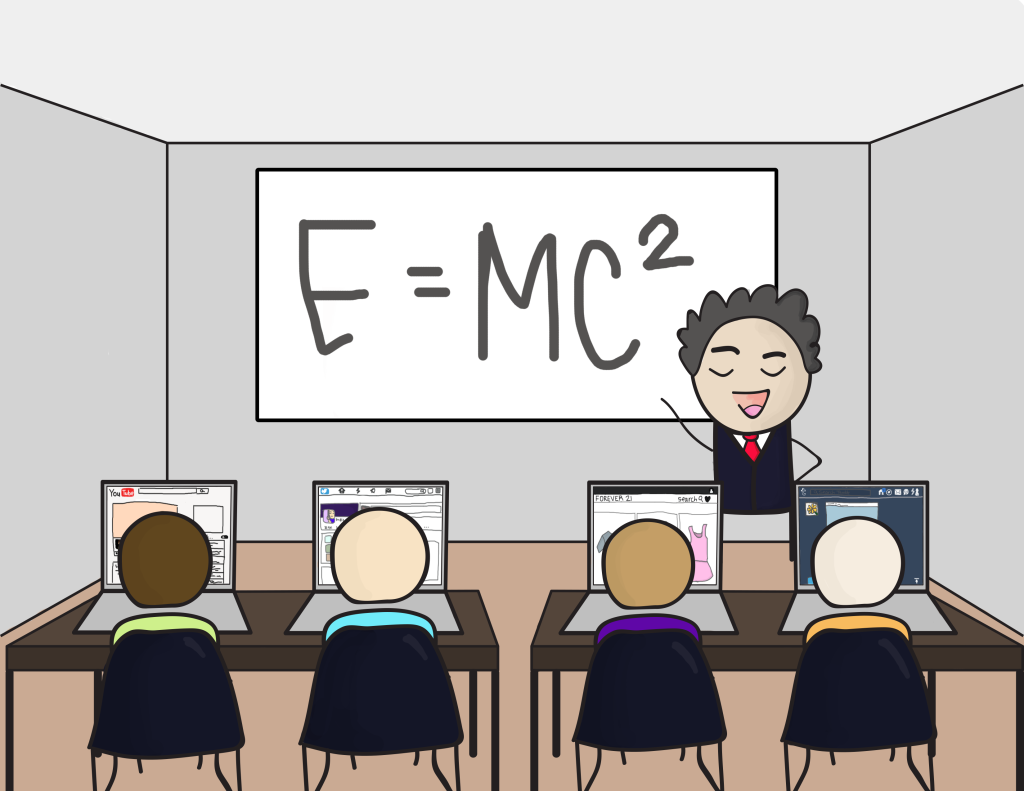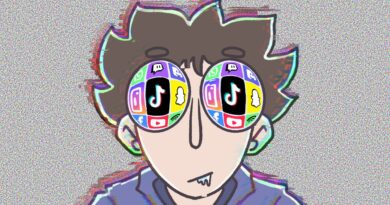How The No-Tech Policy Is Hurting Students
Sitting in the back of a classroom during a lecture, you can see screens lit up like windows. There is the powerpoint that a professor is gesturing at, and there are the laptops, phones, and Ipads that the rest of us students are looking at. There’s no arguing that technology influences our lives more than ever, but there’s much debate over whether or not students should be allowed to bring electronics into their education.
Everyone has an opinion. You see the older generation shake their wrinkled fists at the heavens and cry, “Those gosh darn brainwashing’ computers!”
Every semester there’s a syllabus outlining a rigid “no phone” policy. Occasionally a professor will try to call someone out for paying more attention to their laptop than to the material being discussed. It’s time to address this outdated mentality of blaming the internet for short attention spans, poor performance, and entitled attitudes toward grades.
I’ll say it loud for the people in the back texting—technology isn’t ruining anyone’s life. Phones can be used to record lectures to study from later. A camera can save pages from a textbook, which would otherwise weigh you down. Online databases store notes that can never be forgotten at home or lost. With one click, we have access to all of the world’s information in less than a minute. How can any of this hurt a student?
We are not the first generation to slack off or get distracted, nor will we be the last. Before it was passing notes, and now it’s tweeting. A century ago, people still doodled. Now we drift through Buzzfeed, Facebook, and Instagram instead.
One truth prevails time: you can’t force someone to learn. The use and purpose of technology depends entirely on the individual’s motives and purpose. We shouldn’t take away someone else’s opportunity just because some might abuse the privilege. I’ve seen students get yelled at for trying to learn at their own pace and style. Look a bit closer and you’ll notice during a discussion of Italian Renaissance, someone zooming in on an image of Mona Lisa, maybe refreshing their memory of who exactly Simone De Beauvoir was, or googling a math formula.
There are so many reasons why turning to technology is preferable: we want to know more. Maybe we have a question that is a bit off topic, or we find it easier to learn material that way. Whatever the reason, students should have the choice, if not for the fact that we are a generation revolutionizing the way we access information, then because we deserve basic human respect. We are adults capable of thought, and managing our time, with our own interests, and attention.
Each screen is a window into our lives, and you don’t have to look into each one to trust that we are doing something worthwhile.




